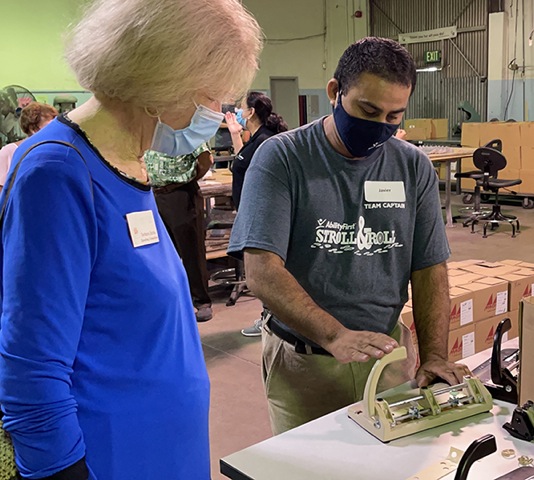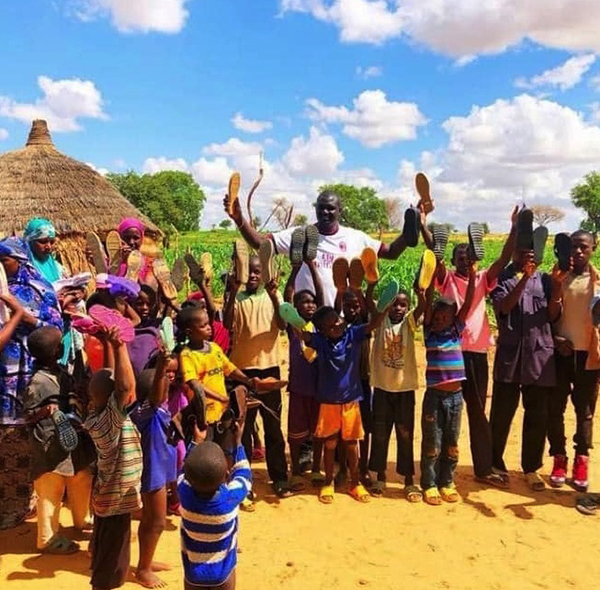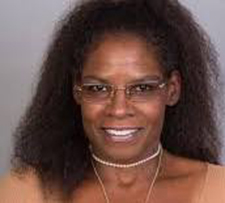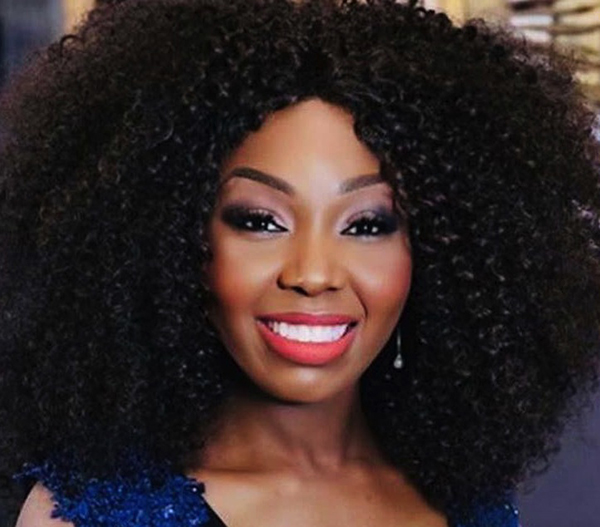MAKING A DIFFERENCE
By Darlene Donloe
Contributing Writer
The motto of AbilityFirst is “We look beyond disabilities, focus on capabilities and expand possibilities.”
The organization does it by working with people with developmental disabilities and their families to create a welcoming environment where everyone feels they belong and are valued.
“We have support for people with lifelong disabilities,” said AbilityFirst CEO Lori Gangemi. “We focus on the ability and not the disability.”
At a recent ribbon-cutting ceremony, the nonprofit, once known as the Crippled Children’s Society, celebrated a merger with FVO Solutions Inc., formerly known as Foothill Vocational Opportunities. Local dignitaries were in attendance including Rep. Judy Chu, D-Monterey Park, state Sen. Anthony Portantino, D-La Canada Flintridge, and Pasadena City Council members.
The merger actually took place a year ago, according to Gangemi, but due to the pandemic, the community and those they serve were unable to celebrate the two nonprofits joining forces.
This year, due to the vaccines allowing some businesses to open safely, a small group was able to gather to recognize the alliance of the two organizations, which together have more than 95 years of experience.
By joining forces, AbilityFirst and FVO Solutions deliver critical and transformational support services to an expanded population of more than 2,000 people with developmental disabilities and their families in Los Angeles County. They also are better positioned to support efforts toward diversity, equity and inclusion.
“The merger made us stronger,” Gangemi said. “We were the larger [organization] and folded them in. We have more efficient programs. We are stronger together.”
AbilityFirst provides various programs for people with disabilities to realize their full potential.
The organization works with children and adults with developmental/intellectual disabilities from birth including autism and those on the autism spectrum, cerebral palsy and Down syndrome.
Gangemi, 59, said the organization focuses its efforts on programs that are proven to have the greatest impact on a person’s success: basic life skills enhancement through its children’s and adult programs; higher education and employment readiness; and independent living and social and recreational programming. She said preparation, socialization, communication and education are the keys to helping people achieve their personal best.
AbilityFirst works with children as young as 5 and adults as old as 80. The children are involved in an after-school program. The adults are helped with life skills, employment and college.
“We help them do their personal best,” Gangemi said. “We do adaptive social things with them. We focus on everyday life skills and how to prepare for jobs. Once they become an adult — they don’t have to leave. We continue to help them.”
Adults are taught basic life skills including food preparation like how to make a grilled cheese sandwich, how to be safe in the kitchen and how to clean up. They are also taught grooming, personal hygiene, social skills and even how to shake someone’s hand.
School-age youth who have developmental disabilities are provided with a nurturing environment at after-school and summer programs. Trained staff provide opportunities for new experiences that encourage socialization, exploration and choice, Gangemi said.
Participants enjoy programs that provide needed personal care (including feeding, changing, transferring, etc.) while supporting personal growth and discovery.
AbilityFirst provides person-centered programs that are grounded in individual choice, autonomy and community participation. The programs help participants discover what is important to them in their lives and develop the skills that are important for them to achieve their goals.
Gangemi said some persons with a disability don’t know what they like because they “haven’t been exposed to things.”
“We help them determine what they want to do,” she said. “We help them with volunteer work or internships and how to present themselves.”
Through center-based activities and field trips, AbilityFirst helps participants in communication (participants work on communicating their basic wants and needs through language skills, body language, picture boards or use of technology), socialization (participants increase their ability to interact with their peers, such as respecting personal space, taking turns and making new friends), and healthy living (including swim instruction — participants improve and practice healthy living including learning to choose healthy snacks and portion control and have opportunities to play outside or swim).
Some of the organization’s clients live with their families and some with a roommate. About 15 live in AbilityFirst’s two group homes, while 10% live independently.
The organization also supports students at Pasadena City College.
“They have the academic ability to be in school, but need help with the social part of it,” Gangemi said. “They need to know how to talk to their professor, and how to get to campus. They are assigned an education support person.”
When it comes to manufacturing, AbilityFirst has a dedicated workforce, equipment, material storage and handling capabilities to service a wide variety of assembly needs. They specialize in a wide range of materials and parts from wood, aluminum, plastic, metal, corrugated and more.
The organization’s customers include government, commercial, consumer and industrial. AbilityFirst assembles final goods, sub-assemblies product displays and more.
AbilityFirst is not all work and no play. The nonprofit also offers a one-week summer camp at Camp Paivika, located in the San Bernardino National Forest for kids and adults at different times of the year.
“It’s fun,” Gangemi said. “It’s their vacation. Some families are never able to get away.”
When COVID forced AbilityFirst to close its doors, Gangemi said the staff rose to the occasion and delivered remote programs.
“We were able to do some of the programming through Zoom,” Gangemi. “We used Facetime and made phone calls. We sent notes and cards because we know it’s isolating to have a disability.”
AbilityFirst is currently back to in-person activities but on a limited basis.
“What we did was we focused on each person’s individual goals,” Gangemi said. “Then we started meeting at alternate locations. We met them in the community, their front yard or a park. We did it in a smaller capacity. We made sure to follow protocols.”
During the shutdown, group homes went into 24-hour-a-day mode because no one was going out.
“We were there keeping them engaged,” Gangemi said. “We monitored all the [federal health] guidelines. We understood that they needed that social support.”
The online programming is designed to inspire socialization and fun and to overcome some of the isolation and feelings of anxiety that can result from the disruption of daily routines.
Activities include learning new technology and computer skills, exercise and other physical activities, and personal care and self-advocacy.
The virtual and alternative programs help to empower individuals to continue to identify and explore their interests and goals, effectively communicate their needs and wants, interact in a variety of new activities and environments, and live healthy and active lifestyles.
Gangemi said there are misconceptions about people with developmental disabilities.
“The biggest misconception is that people underestimate people with a disability and the impact it has with having someone with a disability,” she said. “It can strengthen the whole team. They are model employees. They are happy someone took a chance on them. It changes the dynamic of the workforce. They get you to look at things differently. They see things we don’t.”
Gangemi, who studied communications at Washington State University and calls Tacoma home even though she grew up in a military family and lived in several locations, has been with AbilityFirst as its CEO since 2004.
Working with the organization gives her “total satisfaction.”
“When I hear the staff and families talk about the difference we have made, and when we make an impact on everyone in the household including siblings and the parents, it’s heartwarming,” she said.
Darlene Donloe is a freelance reporter for Wave Newspapers who covers South Los Angeles. She can be reached at ddonloe@gmail.com













